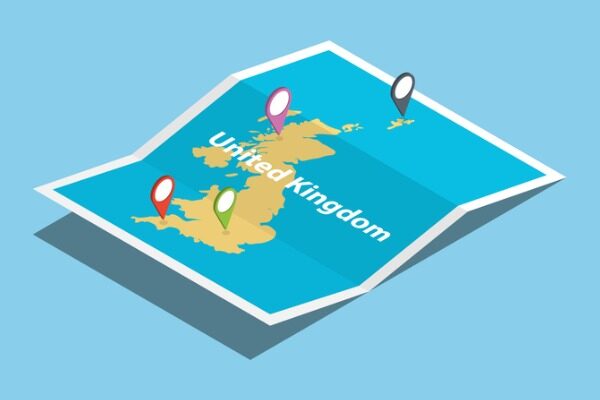CMME, the contractor mortgage providers, talks through the recent changes to Stamp Duty rules and how they apply to freelancers. So how does the Stamp Duty holiday help freelancers?
If you’re self-employed, you might be wondering what the current Stamp Duty changes means for you.
With the housing market continuing to improve post-lockdown and house prices hitting a new record high, now’s a great time to learn how recent changes might affect you when it comes to property planning.
What is Stamp Duty if you're buying a home?
Stamp Duty is a tax that, in normal circumstances, most home buyers would account for when purchasing a property.
However, in July 2020, Chancellor Rishi Sunak revealed the Stamp Duty holiday, intended to boost the housing market post-lockdown. This is great news for most home buyers – it means saving thousands.
What are the new Stamp Duty holiday rules?
Before, the threshold for paying Stamp Duty was £125,000. Now, it’s £500,000. New rates of the tax mean that the average Stamp Duty bill will fall by £4,500, according to Zoopla.
These new terms will be in place until 31 March 2021.

How much Stamp Duty will I save?
According to Nationwide, the average UK house price rose by 2 per cent in August to £224,123.
Before the Stamp Duty holiday, buying a house at this price would’ve entailed 2 per cent Stamp Duty tax (unless you were a first-time buyer). With the new rules, you’d stand to save £2,000 on your purchase.
This saving rises significantly if you’re considering a housing market like London where the average house price is £653,965 according to Zoopla. This means a homebuyer in London can save up to £15,000 on Stamp Duty.
Property price | Previous Stamp Duty bill | New Stamp Duty bill | Stamp Duty saving |
£150k – £200k | £0.5k – £1.5k | £0 | £0.5k – £1.5k |
£200k – £250k | £1.5k – £2.5k | £0 | £1.5k – £2.5k |
£250k – £300k | £2.5k – £5k | £0 | £2.5k – £5k |
£300k – £350k | £5k – £7.5k | £0 | £5k – £7.5k |
£350k – £400k | £7.5k – £10k | £0 | £7.5k – £10k |
£400k – £450k | £10k – £12.5k | £0 | £10k – £12.5k |
£450k – £500k | £12.5k – £15k | £0 | £12.5k – £15k |
£500k – £925k | £15k – £36.3k | £0 – £21.3k | £15k |
How does the Stamp Duty holiday help freelancers?
The idea of the Stamp Duty holiday, in simple terms, is to lend a helping hand to the housing market. There’s no reason why freelancers can’t benefit from this as well.
The holiday won’t change your income, but it changes the way you use your money to work best for you as a freelancer. For first-time buyers, the increased threshold means you can buy higher value properties and still benefit from the discount. For movers, this benefit can result in huge savings depending on the value of the property you’re buying.
Between the Stamp Duty holiday and the delay in IR35, now may be the ideal time to apply for a mortgage – whether you’re a first-time buyer, moving home, or looking to remortgage.
The savings you make from the tax holiday could mean a real difference to the property or financial stability you gain as a result.
So, let’s think, what could you do with an extra £2,000?
Increase the deposit on your next home
With the average deposit now in the region of £33,000, the savings from the Stamp Duty holiday could boost the amount you have for a deposit for a house. Recently, many lenders have increased the required deposit to 15% because of the higher risk of 90% mortgages in a time of stay-at-home, social distancing, and automated valuations.
Do some home renovations
An extra £2,000 can go a long way when it comes to home renovations – whether it’s having a decorator in, new carpets fitted, or a landscaper for the gardens. We’re spending more and more time at home these days, so the savings from the Stamp Duty holiday can be a great opportunity to up your property’s value.
Bolster your savings
As the Bank of England dropped the bank base rate to a record low of 0.1% in March, your savings are unlikely to be working hard for you unless they were fixed. For easy access saving, a boost of this size can offer a bit of financial security that 2020 has demonstrated it can be useful to have.

Take a staycation
Trips abroad remain risky: a two-week quarantine when you get to where you’re going or come back is increasingly unappealing. The staycation’s rise in popularity presents more and more options for you to get away and take a break a bit closer to home.
Is now a good time to buy a house, during the Stamp Duty holiday?
Though the mortgage and housing market is a mixed bag at the moment, there are many positives.
2020 has been a year to reassess and reprioritise, and it’s shown that having financial stability through periods of uncertainty is really important. Purchasing a property is one of the best ways to achieve that security. This stability is particularly important if you’re a freelancer.
Can I get a mortgage through my limited company AND benefit from the Stamp Duty holiday?
Yes – homebuyers who buy property through a limited company will also be exempt from Stamp Duty on properties up to £500,000. More specific guidelines on the holiday can be found here.
There are many reasons you might choose to buy a property through your company rather than as an individual. Take a look at CMME’s free guide to purchasing a property through your limited company to help you think about whether this is an option you might be interested in.
As one of the UK’s leading protection specialists for freelancers, CMME understands the way you work and can ensure that you have the appropriate mortgage offer in place for your current lifestyle and longer-term needs.
Whether you want to talk specifics or are just after some general advice, CMME can help. Speak to them today on 01489 223 750 for a completely free, no obligation mortgage consultation. Or click here to arrange a call back.
For more advice on buying a home if you’re self-employed, take a look at our Freelancer’s guide to getting on the property ladder, and How to get a mortgage as a freelancer. Along with the challenges facing freelancers excluded during Covid-19 who are applying for mortgages.






